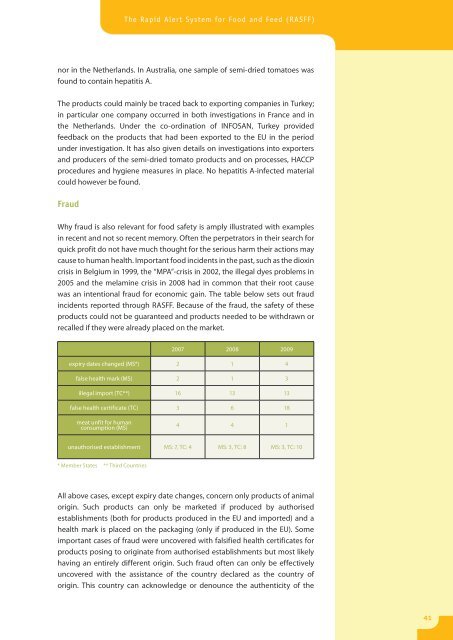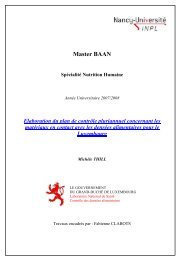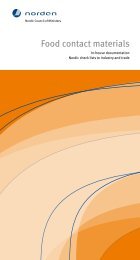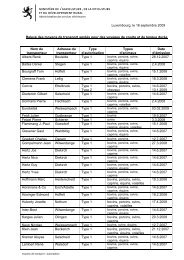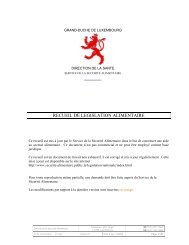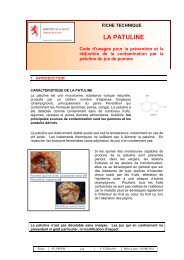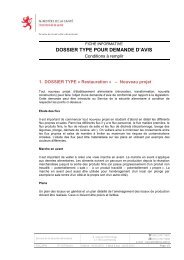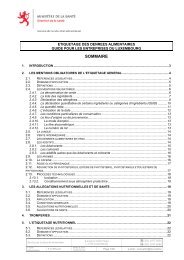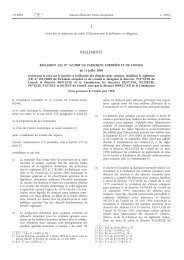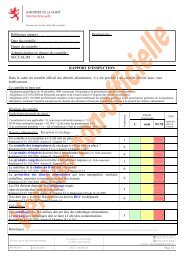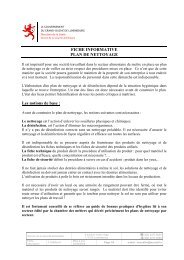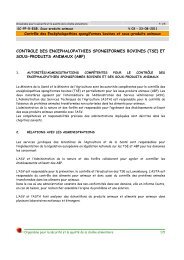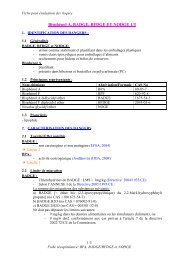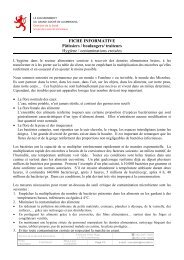(RASFF) Annual Report 2009 - European Commission - Europa
(RASFF) Annual Report 2009 - European Commission - Europa
(RASFF) Annual Report 2009 - European Commission - Europa
You also want an ePaper? Increase the reach of your titles
YUMPU automatically turns print PDFs into web optimized ePapers that Google loves.
The Rapid Alert System for Food and Feed (<strong>RASFF</strong>)<br />
nor in the Netherlands. In Australia, one sample of semi-dried tomatoes was<br />
found to contain hepatitis A.<br />
The products could mainly be traced back to exporting companies in Turkey;<br />
in particular one company occurred in both investigations in France and in<br />
the Netherlands. Under the co-ordination of INFOSAN, Turkey provided<br />
feedback on the products that had been exported to the EU in the period<br />
under investigation. It has also given details on investigations into exporters<br />
and producers of the semi-dried tomato products and on processes, HACCP<br />
procedures and hygiene measures in place. No hepatitis A-infected material<br />
could however be found.<br />
Fraud<br />
Why fraud is also relevant for food safety is amply illustrated with examples<br />
in recent and not so recent memory. Often the perpetrators in their search for<br />
quick profit do not have much thought for the serious harm their actions may<br />
cause to human health. Important food incidents in the past, such as the dioxin<br />
crisis in Belgium in 1999, the “MPA”-crisis in 2002, the illegal dyes problems in<br />
2005 and the melamine crisis in 2008 had in common that their root cause<br />
was an intentional fraud for economic gain. The table below sets out fraud<br />
incidents reported through <strong>RASFF</strong>. Because of the fraud, the safety of these<br />
products could not be guaranteed and products needed to be withdrawn or<br />
recalled if they were already placed on the market.<br />
2007 2008 <strong>2009</strong><br />
expiry dates changed (MS*) 2 1 4<br />
false health mark (MS) 2 1 3<br />
illegal import (TC**) 16 13 13<br />
false health certificate (TC) 3 6 18<br />
meat unfit for human<br />
consumption (MS)<br />
4 4 1<br />
unauthorised establishment MS: 7, TC: 4 MS: 3, TC: 8 MS: 3, TC: 10<br />
* Member States ** Third Countries<br />
All above cases, except expiry date changes, concern only products of animal<br />
origin. Such products can only be marketed if produced by authorised<br />
establishments (both for products produced in the EU and imported) and a<br />
health mark is placed on the packaging (only if produced in the EU). Some<br />
important cases of fraud were uncovered with falsified health certificates for<br />
products posing to originate from authorised establishments but most likely<br />
having an entirely different origin. Such fraud often can only be effectively<br />
uncovered with the assistance of the country declared as the country of<br />
origin. This country can acknowledge or denounce the authenticity of the<br />
41


